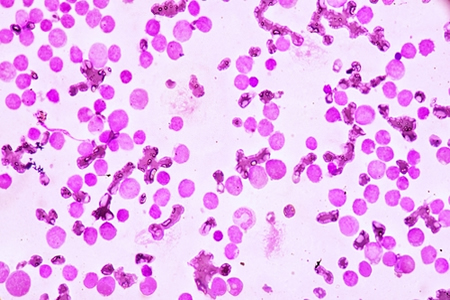The U.S. Food and Drug Administration (FDA) has approved a new treatment for acute myeloid leukemia for patients who have specific isocitrate dehydrogenase 2 (IDH2) gene mutations.
Approximately 21,380 individuals are diagnosed with AML each year. The disease is responsible from more than 10,500 deaths a year, according to figures from the NIH National Cancer Institute.
For the past seven years, Celgene and Agios Pharmaceuticals have been working together developing the IDH2 inhibitor Idhifa® (enasidenib), previously known as AG-221 and CC-90007.
The FDA has approved the use of the drug for adults who have relapsed AML who have been shown to have IDH2 mutations in blood or bone marrow samples using the RealTime IDH2 Assay developed by Abbott Laboratories.
Celgene developed the drug using the Agios cancer metabolism research platform – the first drug to be approved that has been developed using the platform. FDA approval was granted to Celgene after the results of a single arm clinical trial of the drug on 199 patients with relapsed or refractory AML who had IDH2 mutations, determined using the RealTime IDH2 Assay.
The new treatment for acute myeloid leukemia was administered for 6 months. 19% of patients had complete remission for a median of 8.2 months. 4% had a partial hematologic recovery for a median of 9.6 months. 157 of the patients required blood or platelet transfusions at the time the joined the study. 34% of those patients no longer needed those transfusions by the end of the trial with Idhifa®.
The new treatment for acute myeloid leukemia is not without side effects, which can include vomiting, diarrhea, nausea, decreased appetite and an increase in bilirubin levels. The new treatment for acute myeloid leukemia cannot be administered to women who are pregnant as the drug can cause to the developing fetus. The FDA warns that the treatment can lead to the development of the potentially fatal differentiation syndrome, so patients must carefully monitor for symptoms. If caught early, the condition can be treated effectively with corticosteroids.
